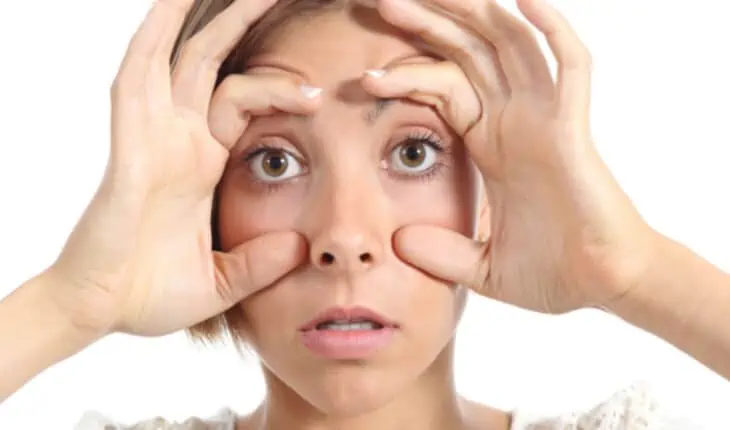How does stress affect the eyes? It’s well known that excess stress can have physical long-term effects as well as mental ones. There are certain short-term symptoms that we’re all familiar with, such as clammy palms and quickened breathing, but did you know that one of the things stress can impact is your vision?
What are some common physical signs of stress? Stress can increase your risk of depression, heart attacks, and can raise your blood pressure, decreasing your quality of life.
As part of the “fight and flight” response, your pupils also dilate in order to enhance your vision when you are facing a stressful situation. Being regularly stressed out means that long-term, this can result in blurred vision and light sensitivity (photophobia), among other things. According to Roshni Patel, BSc (Hons) MCOptom, expert optometrist at Lenstore, “Stress impacts your eyes with sensitivity to light, eye-twitching, too wet or dry eyes, blurry vision, and eye strain… Stress related issues are most likely temporary, but, do be sure to see your optometrist if any of these symptoms persist”. A literature review published in 2018 found that the continually elevated cortisol levels that result from prolonged stress negatively impact the eyes due to the imbalance it causes in the autonomous nervous system and the accompanying vascular dysregulation, “hence stress may also be one the major causes of visual system diseases such as glaucoma and optic neuropathy”.
Why should you take control of stress? Ways to decrease stress include defining and tackling the route problems, taking up moderate exercise such as walking, yoga, or swimming (as these release endorphins) and making changes to your diet to increase your consumption of foods that are high in chlorophyll, including dark green vegetables. Chronic stress can strip your body of B vitamins, so revise your diet and supplementation to ensure you are incorporating this vitamin to a healthy degree. Stress can be both a consequence and a cause of stress so it’s important to take steps to remediate the situation now.
Raj Maturi, an ophthalmologist and clinical spokesperson for the American Academy of Ophthalmology recommends using a 20-20-20 rule as a guideline for taking breaks on screen time: “every 20 minutes, look at least 20 feet (6 metres) away for 20 seconds. This allows the eyes to change focus and decreases headaches or eye-twitching”.
It is also extremely important to disinfect your contact lenses before putting them back in your eyes and replace them according to the instructions of your doctor and lens manufacturer.
Ultimately, if symptoms persist, make sure you have a strong support network and are talking to the right people. Roshni Patel also advises that “whilst it is important to consult your optometrist with any problems related to your vision, it is also crucial to visit your GP and speak through how you are feeling with friends and family”.
The first step is being mindful that if you are experiencing coinciding vision issues and chronic stress, the two might be related. Don’t let this get you down: pro-actively taking steps to tackle stress and working with your optometrist and GP to address vision issues are the start of having a better relationship with your optical health.
- New lipid-based pathway discovered as key to memory formation - 25th June 2025
- Crucial link could explain how Alzheimer’s takes hold - 25th June 2025
- Understanding Your Mind Can Improve Daily Life - 25th June 2025







